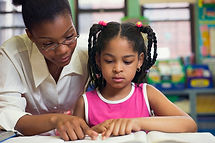SPARROW HOME SCHOOL
Australia
Different Learning Styles
"Expecting all children the same age to learn from the same materials is like expecting all children the same age to wear the same size clothing." - Madeline Hunter
There are endless ways to home school and there is no one right way to do it. You just have to see what works for each individual child and do your best to help facilitate their learning in that way and keep in mind their style of learning could be different for different subjects. Again, let me stress, I believe that is one of the great things about home schooling, that you can tailor your child's learning environment to meet those needs and change it whenever you need to.
At the end of this page, you'll find some great information for you to consider checking out which may help you see how your child/ren might learn best, think about the world, their place in it and how they can contribute in their own way according to how they receive and perceive the world. It can really help you and them in getting their needs met in a real and usable way that suits them best.
The kids and I personally take a more eclectic approach to our home schooling. I pull on resources that suit each child, their level and topic. We do lap booking, unit studies, Montessori, Classical (The Well Trained Mind book by Susan Wise Bauer was a real turning point for us. Though we don't do all that they suggest or use all the resources they suggest, I really like it as a reference book), some of what we do has some structure and natural learning happens by default and has its place for us. In fact, we seem to naturally pull on 'life' and its lessons by default the more we home school and follow child-led/interest based learning.
Let's take a look at some of the styles you might want to consider for your child. These are in no particular order. Search for more on the internet - you'll be spoilt for choice. I've given a very brief description of each so please ensure you more thoroughly research learning styles so that you can best tailor your child's learning experience.
"If a child can't learn the way we teach, maybe we should teach the way they learn."
- Ignacio Estrada
Lap Booking, Unit Studies, Note Booking and Project Based Learning
These are great ways to follow a child with what they want to learn about. They often cross several learning areas which is handy. It can also be a great way to start home schooling for some subjects. These are a brilliant way to learn about, well anything really. I believe Lap Booking, Unit Studies, Note Booking and Project Based Learning in their simplest forms, are about the child choosing a topic they want to learn about. It could be something specific like sharks, it could be a moment in history, inventors and their inventions, technology, it could be about a particular concept and so forth. You then gather your supplies. Library books, documentaries, biographies and other texts that relate to the chosen topic. Hands on activities, excursions and so forth underpin that learning. Internet searches will help you to see and understand how these learning concepts work. These styles of learning are about giving the child space and time to learn about topics that interest them. How far and how deeply they learn is determined by their interest levels. A project like this might last a week, it might last a month, some can take up to a year. It gives the child the chance to really learn about something from a range of resources, angles and people. They are teaching methods in which children/teens/adults can gain knowledge and skills by working for an extended period of time to investigate and respond to a complex question, problem or challenge. Research skill building will be learnt and built upon here. Writing skills, history, science, math and so much more can often come into play too.
Search for ideas via Pinterest and the internet, so much to choose from and lots of freebies to be found.
Montessori
Put simply and briefly, this philosophy is about a system of education for children that seeks to develop natural interests and activities rather than use formal teaching methods. Children are encouraged to think and do for themselves. According to Montessori Australia, "The Montessori approach is based upon the natural laws of human development. Maria Montessori observed that children under six absorb limitlessly and effortlessly from the world around them and in so doing lay down all the foundations for later life – they become adults with all the characteristics and language of the culture into which they have been born simply by living. In this huge task, however, they have some help. They have a special kind of mind that she (Maria Montessori) called an absorbent mind - a strong desire to explore everything around them using their senses and a drive to become independent. She identified certain windows of opportunity for the child that she called ‘sensitive periods’ during which the child is irresistibly drawn to the things he needs to help him develop his full human potential".
Further, according to the International Montessori Index, they answer, what is the difference between Montessori and traditional education?
"Montessori emphasizes learning through all five senses, not just through listening, watching, or reading. Children in Montessori classes learn at their own, individual pace and according to their own choice of activities from hundreds of possibilities. Learning is an exciting process of discovery, leading to concentration, motivation, self-discipline, and a love of learning. Montessori classes place children in three-year age groups (3-6, 6-9, 9-12, and so on), forming communities in which the older children spontaneously share their knowledge with the younger ones. Montessori represents an entirely different approach to education".
Internet search further on the Montessori method, philosophy, curriculum and more, there is much to discover!
Steiner/Waldorf
Steiner education can be seen as a philosophy that works for all children irrespective of academic ability, class, ethnicity or religion. It takes account of the needs of the whole child – academic, physical, emotional and spiritual. Is based on an understanding of the relevance of the different phases of child development seeing artistic activity and the development of the imagination as integral to learning.
According to Steiner Education Australia, "Steiner education provides enjoyable and relevant learning through deep engagement and creative endeavour, to develop ethical, capable individuals who can contribute to society with initiative and purpose".
Internet search further on the Steiner method, philosophy, curriculum and more, there is much to discover!
Classical Education
According to Susan Wise Bauer of The Well Trained Mind, classical education depends on a three-part process of training the mind. The early years of school are spent in absorbing facts, systematically laying the foundations for advanced study. In the middle grades, students learn to think through arguments. In the high school years, they learn to express themselves.
I (Sparrow Home School) have a copy of 'The Well Trained Mind' by Susan Wise Bauer and find it a wonderful resource. We don't do all that she suggests nor always in the way she suggests nor as much but it's a wonderful guide to keep referring back to. Many libraries tend to stock the book so perhaps borrow it for ideas.
Internet search further on the classical education method, philosophy and more, there is much to discover!
Structured Learning
Learning is done in a structured framework, similar to that found at school often meaning using predictable, consistent routines. Can be seen as a 'school at home' approach by some. Some run this style of learning on a scheduled timetable like at school. Like all styles, it depends on what suits the child.
If you feel your child works best in this style, then see what ideas you can find on the internet, have discussions with other like-minded families and more.
Natural Learning/Unschooling
This style can be described as an educational method and philosophy that advocates learner-chosen activities as a primary means for learning.
From Teach Your Own: The John Holt Book of Homeschooling by John Holt and Patrick Farenga: "Unschooling, for lack of a better term (until people start to accept living as part and parcel of learning), is the natural way to learn. However, this does not mean unschoolers do not take traditional classes or use curricular materials when the student, or parents and children together, decide that this is how they want to do it. Learning to read or do quadratic equations are not "natural" processes, but unschoolers nonetheless learn them when it makes sense to them to do so, not because they have reached a certain age or are compelled to do so by arbitrary authority. Therefore it isn't unusual to find unschoolers who are barely eight-years-old studying astronomy or who are ten-years-old and just learning to read".
You may find this website helpful: http://www.johnholtgws.com/
Books like 'The Unschooling Handbook' by Mary Griffith and titles by Beverley Paine and more are a great intro.
Have a look around the internet, your local library and chat with like-minded families to learn more about this method of home schooling and lifestyle choice - lots of exciting things to discover.
Charlotte Mason
The Charlotte Mason method is based on a firm belief that the child is a person and we must educate that whole person, not just their mind. So a Charlotte Mason education is three-pronged: in Charlotte Masons words, “Education is an Atmosphere, a Discipline, a Life.” Charlotte encouraged the reading of a lot of books, living books (eg: biographies etc) rather than dry textbooks to keep it alive and interesting vs just memorising facts.
You may find this website helpful: https://simplycharlottemason.com/what-is-the-charlotte-mason-method/
Internet search further on the Charlotte Mason method, philosophy and more, there is much to discover and think about!
Purchased Curriculum (and a note on free curriculums)
This style is when you use a purchased package that comes complete with the delivery of information, assigned tasks for students to complete, and a structure for assessment of student progress. You basically just work through the provided workbooks and complete any tasks set out along the way. Some are designed for the parent to oversee and assess, others are designed for you to return to an external party for assessment. Could be seen as 'school at home' by some.
Internet search further on purchased curriculums, they can be expensive so you want to ensure you really check them out before purchase to ensure they are what you think will be the best fit for your child and meet their needs. See if you can get your hands on another home schoolers copy of what you may purchase to check it out first.
Free curriculums. Internet searches can reveal a range of free curriculums that you can follow. Check them out and see if they may work for you. Some may have a strict process to follow, some may follow the learning styles as mentioned above. See what you can find if you think this style is for you.
Eclectic
This style is when you use a range of resources, styles and methods not only for each child but for each subject undertaken. It's using a little bit of some or all of the above to complete the child's experience. This, I would suggest, is the most varied option, pulling on a range of resources, mixing it up and keeping it interesting. Again, it depends on your child and their needs. Mix it up!
Distance Education
This style is when you do school work (very much like school at home - one of the main differences is that you are not physically at school) either via the computer (which may have some video or audio components) or by post/correspondence. It can be intense and a lot of time can be spent in isolation and in front of the computer - hands on can be very limited. You may do Distance Education because you live in a remote/rural area, are travelling or maybe have a medical condition that prevents you from attending school (but this does not mean this is the only style of home schooling available to you based on these - you can do it how it suits your family best). I've linked this article from Home School Australia which provides further information based on their personal thoughts so please do further investigation to see if this is a good option for your child.
http://www.homeschoolaustralia.com/articles/usingdistanceeducation.html
Special Needs
Lots of families home school to help their child who may have special needs so that they can fulfill their child's needs the best way for them or maybe because the schooling system let them down or because, like a lot of us, they want to tailor their child's learning experience to suit them as an amazing individual to help them reach their full potential. I'll be honest here, I don't have experience in this area however I did some research so that I could at least offer some links to some websites that could be helpful to you.
-
http://www.homeschoolaustralia.com/articles/specialneeds1.html
-
http://www.homeschoolaustralia.com/directory/categories/specialneeds.html
-
https://hbln.org.au/home-schooling/home-educating/home-educating-special-needs-children
-
https://home-ed.vic.edu.au/home-education-and-special-needs-children/
-
https://www.facebook.com/Home-Schooling-Special-Needs-Australia-290708884318730/
Check out all of the above different learning styles and internet search for ideas. The ideas and resources are endless.
So, how does your child think, learn and perceive their world?
Simply observing your child and how they approach what interests them gives you lots of insight into how they like to learn and think about the world, their place in it and how they can contribute in their own way. That said, often reading up on a range of models about learning styles and observing how your child receives and perceives the world can really help you and them in getting their needs met in a real and usable way that suits them best. Learning to communicate with them according to how they relate to the world is very powerful.
Check out a range of ideas to ponder and see what works best for you all.

























